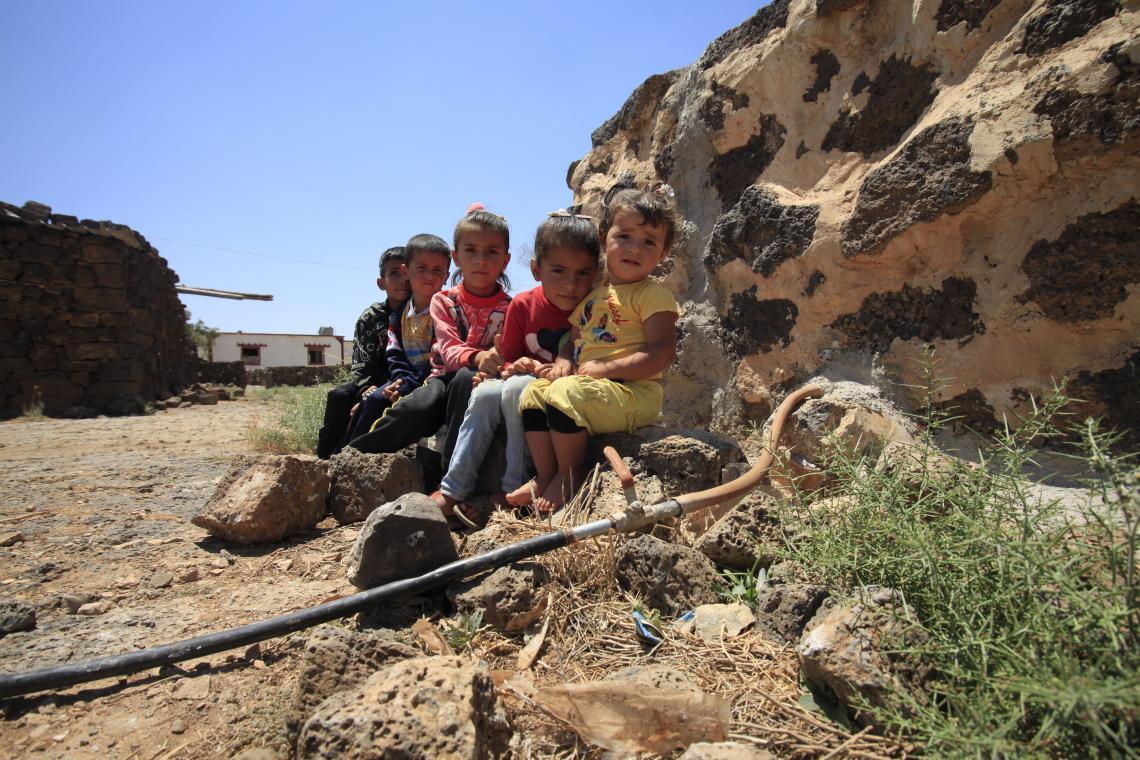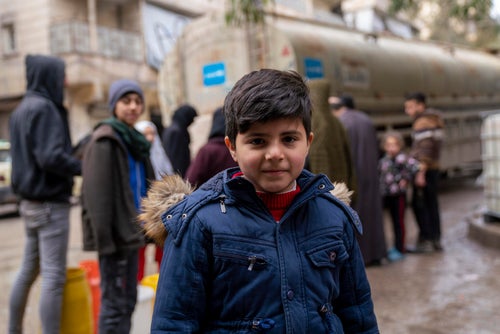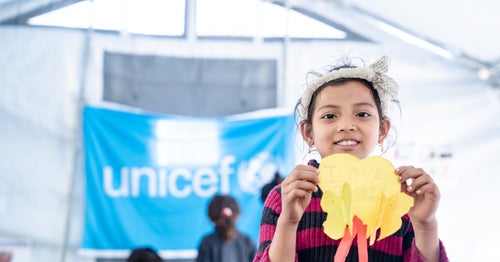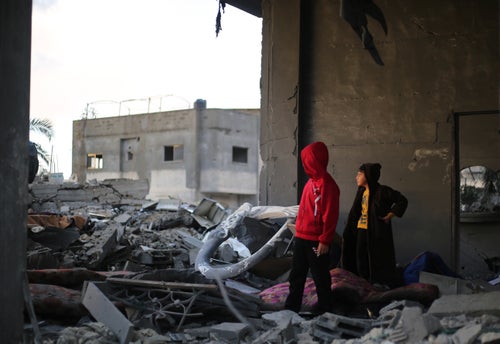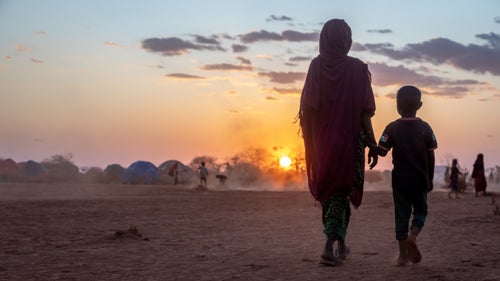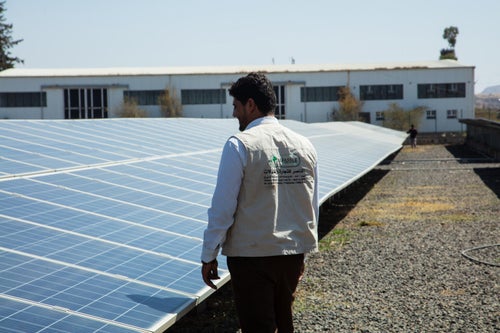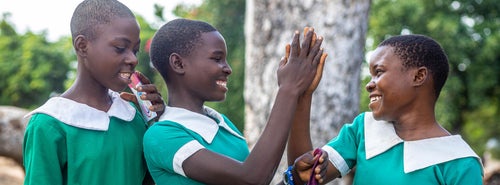“The situation was dire,” says Yousef, the head of his village in southwest Syria.
Without access to safe water, children fall ill, schools and hospitals do not function, and disease and malnutrition spread.
For Yousef and his community, damage to buildings and lack of electricity supply meant that the town's water well was out of order most of the time. Without access to safe water, the village in north rural Dara’a lost most of its population.
“On the rare days when the pump worked, families, having been deprived, would fight to direct water flow to their homes,” he says.
Sheep herding is the main source of income in Da'ara. To survive with their herds, families had to choose between buying costly water from private providers and drinking from small, polluted wells.
This is not an uncommon story. Across Syria, more than 12 million people urgently need access to water, sanitation and hygiene services.
Years of conflict has damaged and disrupted facilities. Many families resort to unsafe alternatives, risking their wellbeing and at times their lives.
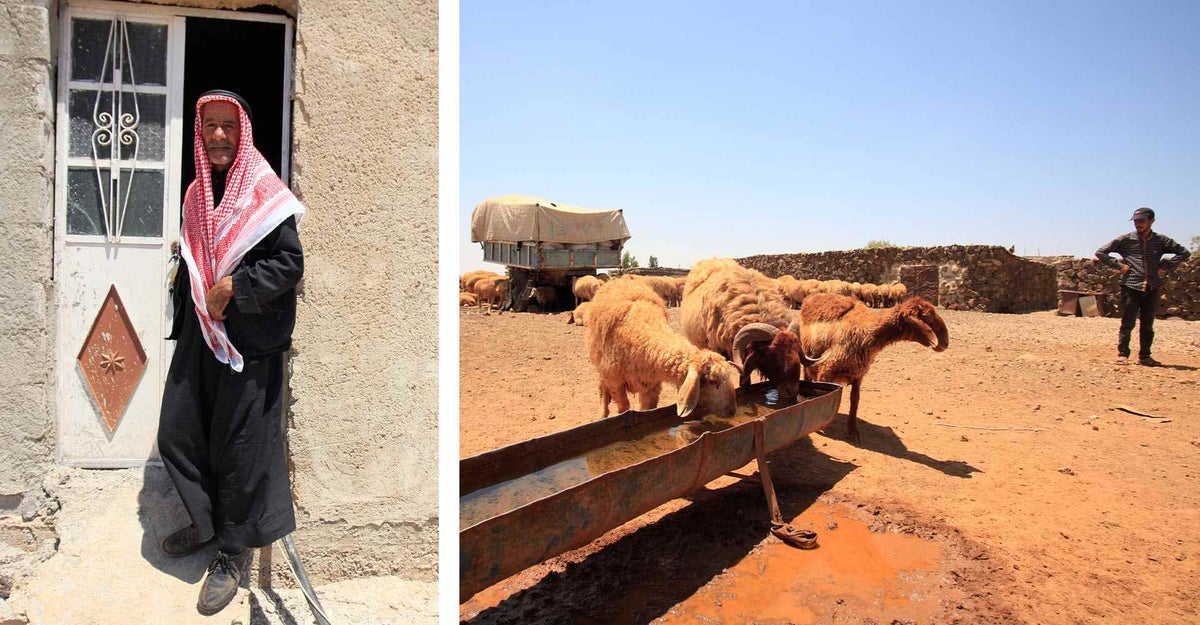
"Where there is water, life flourishes!"
In a crisis, our teams can quickly truck in clean water, drill wells and build toilets. Last year, our teams worked with community leaders to understand the issues and provided the town of Dara'a with electrical and mechanical equipment and installed a solar power supply system.
“This well brought life back to our land, so I’m treating it like a precious treasure!” says Yousef. “Since its rehabilitation I’ve volunteered to operate it every morning and clean its solar panels every week.”
With water flowing again, the village’s population has tripled as families return home. “Where there is water, life flourishes!” says Yousef.
No child should have to drink dirty water. We are working to make sure that every family has access to clean water and sanitation facilities.
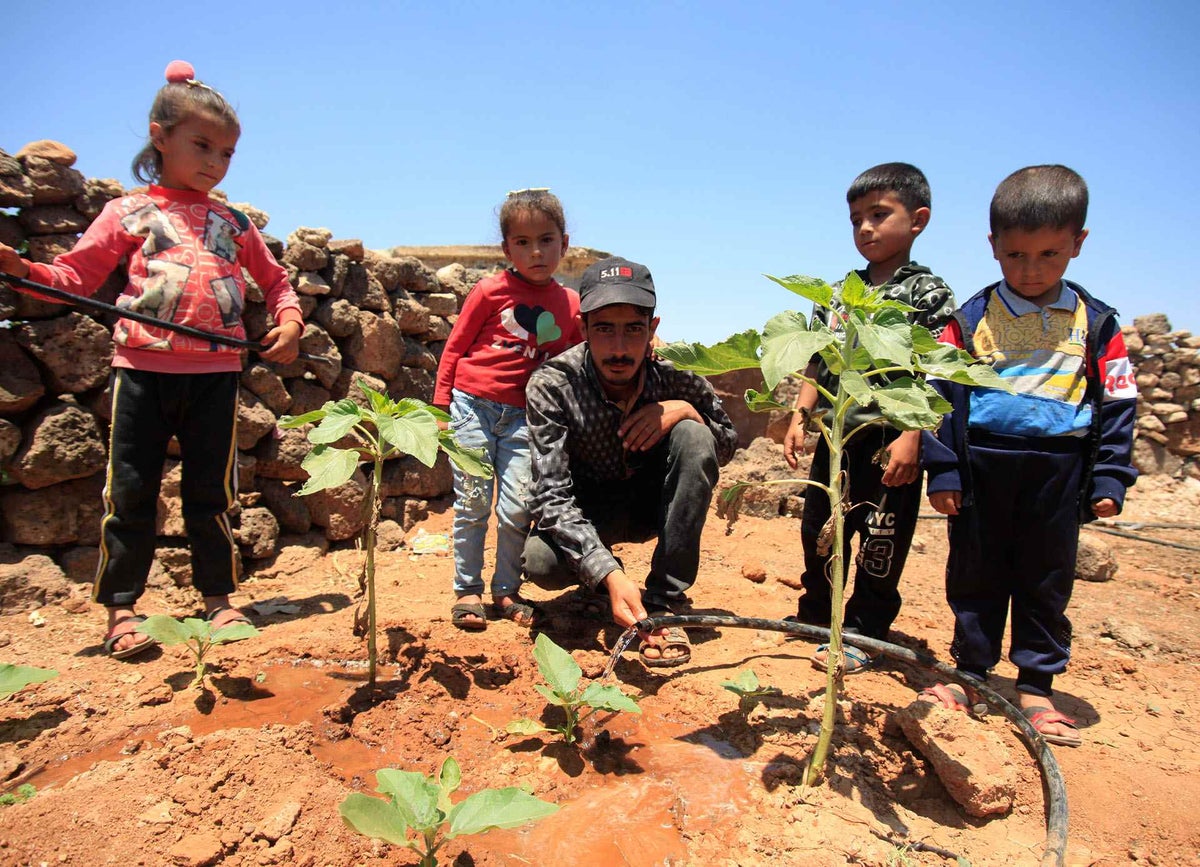
Among returnees, was the family of Shatwa, 60 years old, who rehabilitated their home and land nearby to plant fruit and vegetables.
“Amid this insane rise in food prices, we are very lucky to be able to produce our own,” says Ibrahim, Shatwa’s son, while watering the plants.
“My grandchildren can drink whenever they are thirsty, and we can cook and make coffee for our guests without worrying about a water shortage,” says Shatwa.
Water shortage can deprive children from fully living their childhood which was the case for Balkis, aged seven, Shatwa’s granddaughter.
“My mother wouldn’t allow me to play with my cousins in the fields as we didn’t have enough water to bathe, but now I can play whenever I want!”
This is one of six wells UNICEF has rehabilitated in Lajat this year, bringing water back to 16,000 people in the area.
“We are in the process of rehabilitating other 14 wells reaching additional 85,000 people,” says Ameen, UNICEF Water, Sanitation and Hygiene facilitator.
“We can already see the huge impact on the lives of residents. Our reward is seeing them smile.”
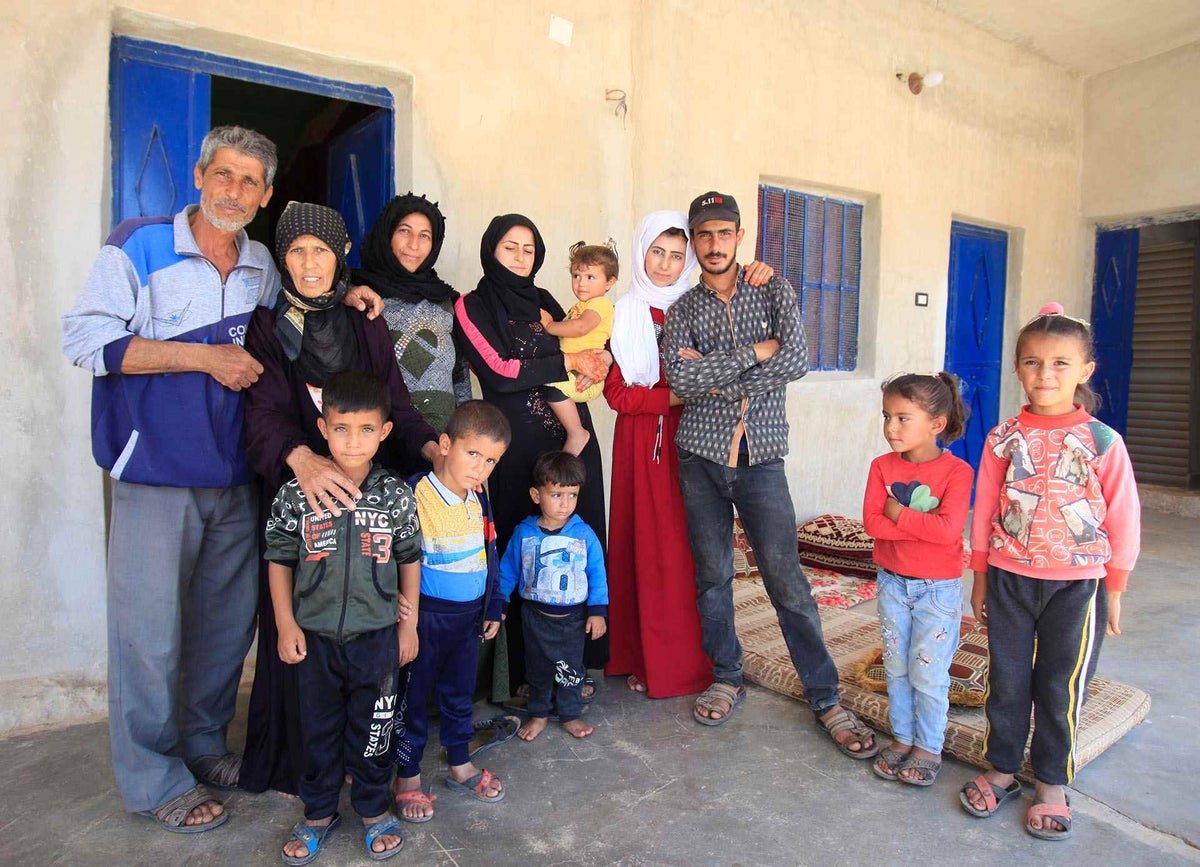
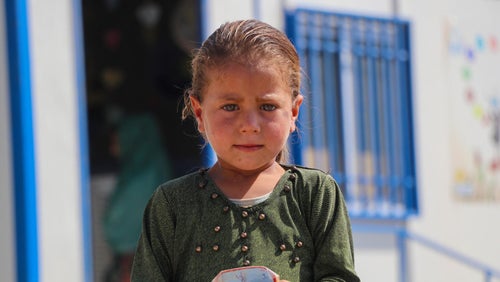
Donate to Children in Syria
For over a decade, a generation of children have grown up knowing nothing but war.
Related articles
Stay up-to-date on UNICEF's work in Australia and around the world



